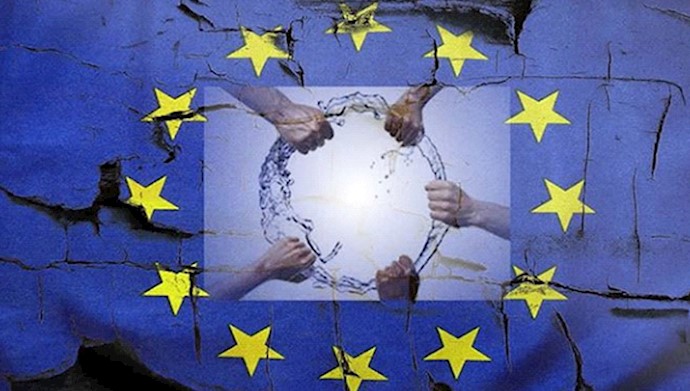Analysis by PMOI/MEK
Iran, Jan. 23, 2019 – This week, as the deadline set by FATF to pass anti-terrorism financing bills nears, the Iranian regime’s parliament will discuss the CFT (Combat the Financing of Terrorism) bill while the Expediency Council has already started to investigate the Palermo bill.
In order to become compliant with international anti-money laundering and terrorism financing laws and standards, the Iranian regime needs to pass these bills, which have become a point of controversy and inner-fights between the so-called conservative and moderate factions.
On January 19, Iranian national television reported that the Expediency Council has already started to investigate the Palermo bill. The report further said that Sadegh Amoli Larijani, both the head of the Iranian judiciary and chairman of the Expediency Council, challenged previous considerations issued Mahmoud Shahroudi’s, the previous head of the Council, about the bill and questioned the parliament’s amendment to the bill so that the bill could not be passed by the Council.
“In today’s meeting where the foreign minister was also present, members, after expressing their different views, scheduled the rest of the investigations to meetings of the political, defense and judiciary commissions,” state-run Channel One broadcasted.
The increased activities over the bill in recent days has alarmed conservatives and hardliners.
“FATF is an oppressive treaty and it’s not in the country’s interests to pass it and we can’t keep silent [about that],” Hossein Nouri Hamedani, a high-profile cleric, said, according to Iranian television.
Arman newspaper wrote: “Less than a month until the ultimatum for passing the (CFT, FATF, and Palermo) bills and the conservative faction has created a hashtag against the possible passing of these bills to oppose them.”
On January 20, the parliament reiterated its previous amendment and sent the nine problems about the CFT bill, raised by the Guardian Council, to the Expediency Council.
Since the U.S. withdrew from the JCPOA, the FATF bills have become vital to Rouhani and his faction.
Rouhani’s election promise was to lift sanctions and normalize the Iranian regime’s relations with the international community. In addition, to be able to circumvent U.S. sanctions to some extent, the regime needs to pass the FATF bills. Otherwise, even its close allies won’t be willing to continue dealing with it.
Laya Joneydi, Rouhani’s legal deputy, linked the FATF bills with the ability to circumvent the sanctions and said: “There is no doubt that passing these bills will pave the way for joining the Financial Action Task Force and facilitates the European financial mechanism.”
Conservatives close to Iranian regime Supreme Leader Ali Khamenei argue that considering the JCPOA experience, passing this bill won’t help the country boost its trades. But their real concern, which they won’t admit openly, is about their interests in money laundering and logistical and financial support to terrorist groups. Joining FATF will render the Iranian money network transparent, to some extent, and prevent a great part of such illicit activities.
Previously, Javad Zarif, Hassan Rouhani’s foreign minister, said that huge money laundering networks are the real reason why some people are opposed to joining the FATF.
“There are many who benefit from money laundering. In [just] one trade, they make $300 million,” Zarif said.
In an interview last November, he said: “Those who launder money in the $100 million range, must have the money to spend millions on propaganda against anti-money laundering laws in the country.”
But there is another very important aspect to the FATF laws that the ruling elite doesn’t like the public to learn about. Just like the JCPOA, complying with anti-money laundering laws and more importantly the terrorism-combating-nature of FATF-compliance contrasts with the Islamic Republic’s philosophy and nature.
The Islamic Republic is founded on the Idea of exporting revolution (read death and destruction) to the world, especially the Islamic world. Like the medieval crusades, this characteristic helps it to avoid internal inconsistencies and problems and helps it to cover them through outside upheaval.
Depriving the ruling mullahs of Iran of the free hand they need to distribute petrodollars among terrorists is equal to condemning them to a slow and painful death.
Both the conservatives and the fake moderates know this rule by heart. Their difference is only about how to handle a dead-end.
There is a famous Persian proverb that says, to suicide out of fear of death, and that’s what Iranian hardliners are concerned about.





